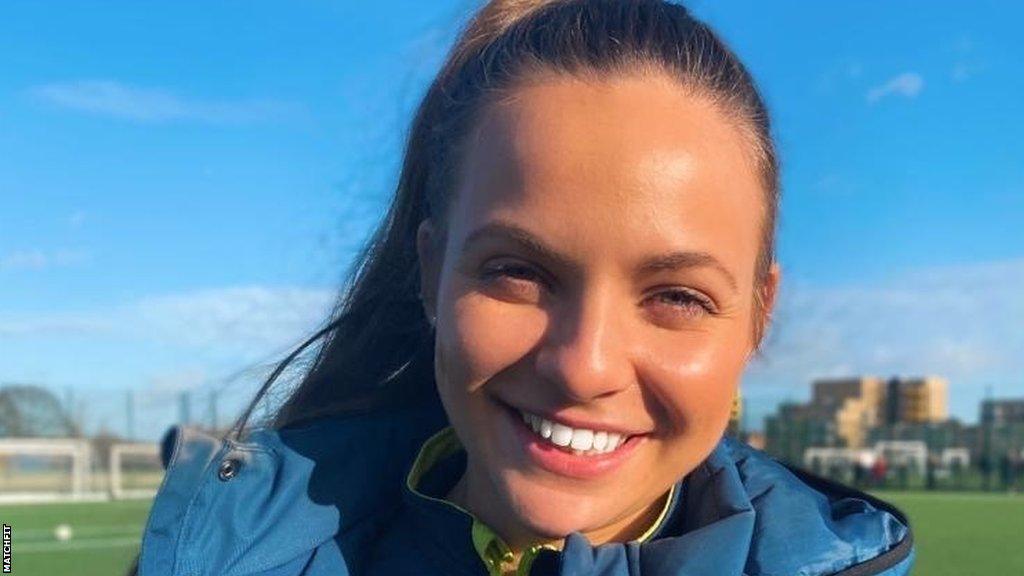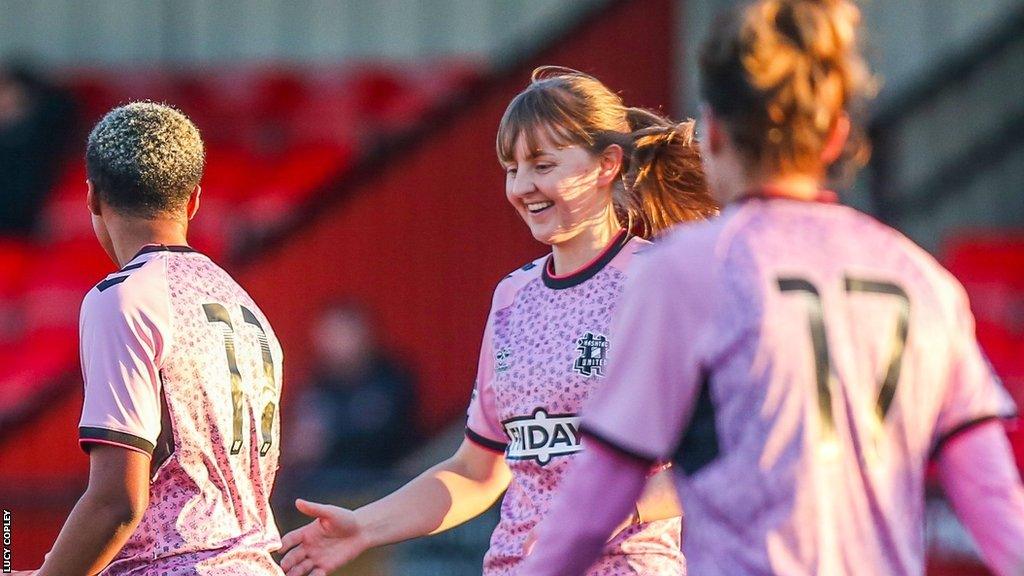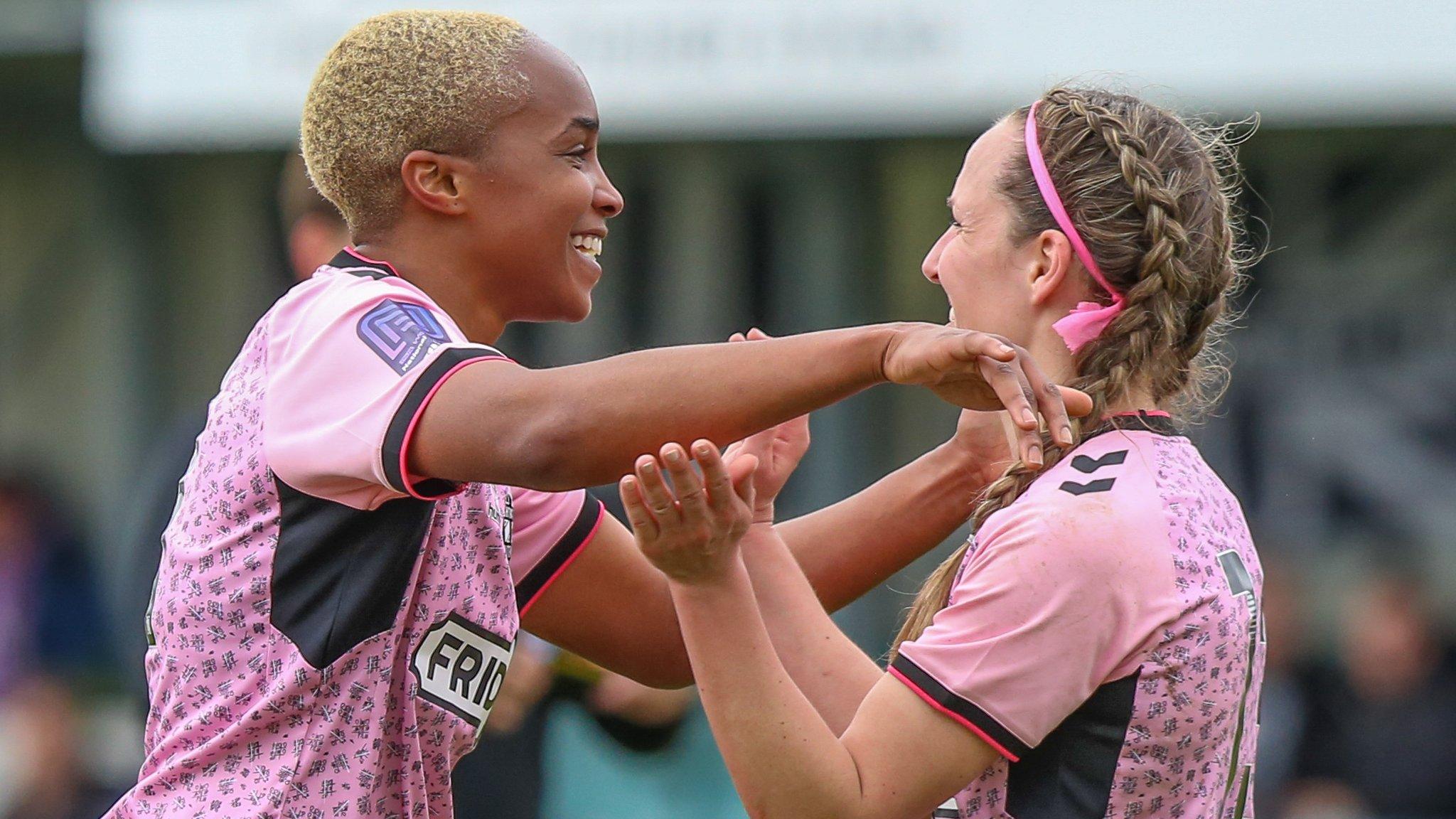Alex Bailess: Former footballer coming to terms with medically enforced retirement
- Published

Alex Bailess now creates football videos for online platforms
"It was like grieving, it was almost like a loss."
For anyone involved in sport, no matter what level, an enforced early retirement can be hard to take.
But former footballer and NHS respiratory physiotherapist Alex Bailess urges anyone who thinks they may have a medical condition not to waste time in seeking advice.
"Don't doubt it for a second, go and get it checked out. It might not be as bad as you think it is. It's better than the worst happening, it's better that you find out," she told BBC Essex.
In the summer of 2020, Bailess was preparing for her first season with Hashtag United, a new women's team formed by a merger between three clubs.
Then only 26, she was diagnosed with cardiomyopathy, a condition that affects the heart's ability to pump blood during heavy exercise.
"Three years ago I got the formal diagnosis. The year before that our family had genetic testing and I got told I might have it and should probably stop playing football," she said.
"As someone who had grown up an athlete, and that was my life, that wasn't good enough for me, so I carried on playing another year and then the next summer I had a repeat of the scan and had already made it worse."
She continued: "When I got the phone call saying 'these are the results of your scan and that's it, now you need to retire', the first thing I thought was it's nearly the end of pre-season and they haven't got a left-back.
"The manager was the first person I called and he was shocked, like I was. Then I told my parents and next I had to tell the girls at training, which was hard, especially as I was captain."
What followed was, Bailess admits a "bit of a weird time" in her life as she tried to come to terms with the diagnosis, the loss of her regular sporting routine and "a bit of my identity", and come up with a way to stay involved in football.
"You're known as a footballer. At work, a doctor introduced me to a patient as a footballer as a way to motivate them to do their physio. And I remember thinking 'I'm not a footballer any more, that's a lie'.
"It was so strange, I was really fortunate that I had a lot of support from the football world, from family from friends, but I still felt really lonely. I felt I'd never get over it. I thought I'd be kind of stuck kind of missing it forever," the 29-year-old said.
"Three years on, I'm in a much different position now and it looks really positive."

Hashtag United are now just two promotions away from Women's Super League
Working in the game 'fills that football fix'
Seeing Bailess filming games on her phone, present and past Hashtag players and the club bought her a video camera.
Since then, the team have gone from strength to strength, becoming National League Division One South East champions last season and making a great start to the current campaign, winning eight of their first nine games to lie second in the third-tier Southern Premier Division.
Bailess is their official videographer and a full-time web content creator, working at all levels within the women's game.
She is only permitted to do 'moderate exercise' and said: "Now I just do what I can like walking the dogs, doing things in the gym slowly, but when you've got that competitive nature and you've grown up doing sport all the time you need to find something and doing my vlogs and going to as many games as I can does kind of fill that football fix."
Bailess is also backing a Women's National League Behind The Ball campaign to highlight some of the back stories of people in the game.
"They are shining the light on coaches who maybe have multiple jobs, maybe players who are mothers, people who do different things in football and maybe contribute in a different way," she said.
"People like me, who for health reasons, long-term injury or family or work commitments, can't continue playing the game in the same way they used to, maybe they can be inspired to still be involved. I think it's a really important campaign."
Alex Bailess was speaking to BBC Essex's Glenn Pennyfather.
Related topics
- Published24 April 2023
